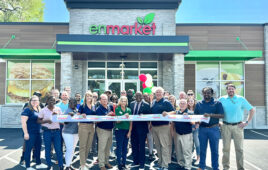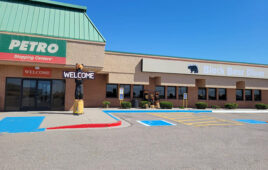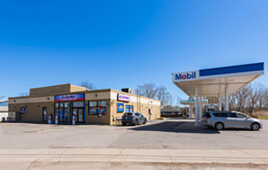As many Americans avoid BP stations in protest over the Gulf oil spill, BP-branded station owners are insisting BP do more to help them convince customers that such boycotts hurt independently owned businesses, not the British oil giant, the Associated Press reported.
To win back customers, stations want BP to help in reducing the price at the pump. BP owns just a fraction of the more than 11,000 stations across the U.S. that sell its fuel under the BP, Amoco and ARCO banners. Most are owned by local businessmen whose primary connection to the oil company is the logo and a contract to buy gasoline.
In recent weeks, some station owners from Georgia to Illinois reported a sales drop between 10-40%. With station owners locked into contracts lasting 7-10 years in some cases, switching to a competing brand is not an option.
According to gasoline retailing trade groups, the boycott’s impact isn’t only evident in Southern states such as Florida, Georgia and Tennessee, but also in places further from the spill like southern Pennsylvania.
Station owners and BP gas distributors told BP officials last week they need a break on the cost of the gas they buy, and they want help paying for more advertising aimed at motorists, according to John Kleine, executive director of the independent BP Amoco Marketers Association.
The station owners also want more frequent meetings with BP officials.
“They have got to be more competitive on their fuel costs to the retailers so we can be competitive on the street and bring back customers that we’ve lost,” Station Owner Bob Juckniess told the Associated Press. He has seen sales drop 20% at some of his 10 BP-branded stations in the Chicago area.
Owners and distributors recently voiced their demands at a meeting in Chicago with BP marketing officials. BP’s reply could come as early as this week, said Kleine, whose group represents hundreds of distributors.
Jim Smith, president and CEO of the Florida Petroleum Marketers & Convenience Store Association, said BP has given some station owners a one-cent-per-gallon discount, which “doesn’t amount to much.”
Kleine told the Associated Press that such discounts appear limited to Florida.
Paola Soldevilla, manager of a BP station in Pembroke Pines, Fla., said it was only when images of oil-soaked birds appeared in newspapers that sales fell sharply, and costing her her usual one-week paid vacation.
This isn’t the first time boycotts have led to a decline in sales for retailers. Kevin Dalton owned a Citgo station when President Hugo Chavez made anti-American statements in 2006, leading to a boycott of the Venezuelan-owned gas company. Sales of gas and in-store items dropped more than 50% after the incident. Sales at his Shell station in Palm Beach Gardens, Fla., have increased 15% since the spill started in late April, but he noted it’s hard to directly tie that to a BP station less than a mile away.
Juckniess, the Chicago station owner, has been running his own promos – free coffee and $2 off a car wash – but he wants BP to step up support of both the stations and the BP brand. “We’re their branded marketers,” he said. “It would be foolish for BP to not support its branded marketers when clearly we can document that some of the loss that we’ve experienced is due to the incidents in the Gulf.”
As customers avoid the gas pumps at BP stations, they also fail to come inside the store, which costs station owners even more in lost business.
What most customers don’t realize is even if drivers opt to fill up at an Exxon or 7-Eleven, they still may buy BP gasoline. Because of the way gas is refined and marketed, BP fuel gets supplied to stations other than those with BP brands.
The boycott’s impact is reportedly felt less in rural areas, where people know the owners personally.
For more information on how retailers are coping with the oil spill backlash, check out p. 10 of CSD’s upcoming July issue.




